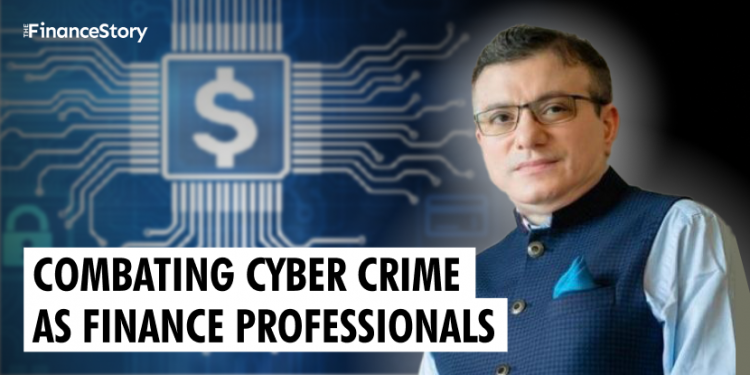- Robin Banerjee is a seasoned corporate leader and the managing director of Caprihans India Limited.
- He has authored the popular book ‘Corporate Frauds: Business Crimes Now, bigger, broader and Bolder’.
- In one of his books, he mentioned that every year we lose about $450 billion to cybercrime, which needs to be dealt with immediately by the finance team.
Cyber Crimes: A worldwide threat
The world is currently standing face to face with one of the biggest upcoming risks; Cybercrime.
As much as it is disappointing to know but it is a fact that no system in the world is unhackable.
No matter how much technology we develop in the near future, it can always be counteracted and decoded.
It is well known, that cybercrime is responsible for the loss of half a trillion dollars of wealth every year.
You can find yourself with an empty bank account one lovely morning because it is not under your control. The valuable data is stored somewhere in the cloud.
I am sure one of you has heard stories from your peers about how they had money in their bank account and then they discovered it was gone one day.
It is not completely unimaginable.
Cybercrime is a threat to everyone within an organization but the finance department should be worried in particular.
Hackers may target financial assets, and many accountants have different knowledge gaps regarding cyber and computer systems.
How CFOs or finance professionals can combat cyber crimes
There are two different types of controls in an organization, internal control, and external control.
Internal controls get threatened when the company’s emails are hacked, internally some wrongdoing takes place, data gets compromised, the formula of the company gets released, and so on.
This basically means that the finance team has to have those systems and processes in place so that internally, whatever is available, is protected through multi-firewalls, and state-of-the-art systems.
The problem is that most boards do not appreciate the risk of cyber crimes hitting internal data.
Now, externally, it is crucial for the finance team to ensure that when a customer interacts with your website to make some transactions their rights and their money are completely protected.
Because it has been proven through various research that if a customer is unsure of the website they are visiting, in two-thirds of the cases, customers will never see the said website. And in 80% of the cases, the customer will never use their credit or debit card on the website.
Therefore, internal and external controls have to be tackled by the finance team or the CFO to get rid of the cybercrime malware.
Three more steps that the CFO or the finance team needs to take to ensure protected functioning are as follows:
- Never compromise on the quality of the technology you are adopting. Keep it upgraded.
- And most importantly, do not ever forget to take Cyber insurance. Cyber losses are now insurable losses including lawyer fees, forensic audit fees, or even giving compensation to a hacker, etc.
- And lastly, employ ethical hackers. Many companies have got a lot of benefits from employing ethical hackers. Even if it is a little expensive, it is worth it.














